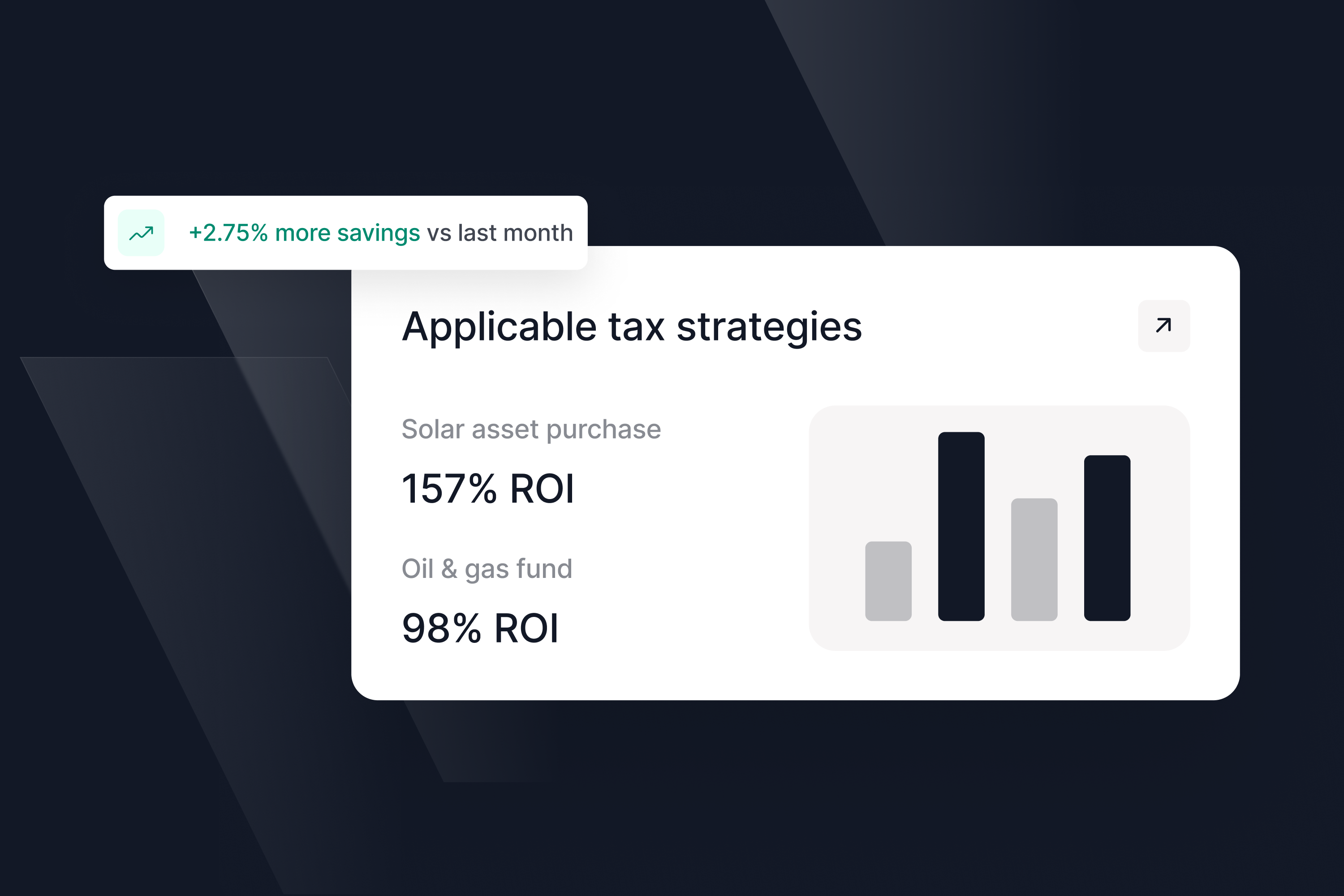
FEATURED ARTICLE
Tax Planning for Realized Gains and Ordinary Income
Tax planning strategies for realized gains and ordinary income

Tax planning strategies for realized gains and ordinary income


As people start investing, building wealth, and paying taxes, they become more familiar with appreciating assets and their importance to building wealth. Unfortunately, most people underestimate how critical they have been to build the wealth of most of the world’s enormous fortunes. This blog post wants to help people understand what appreciating assets are and why they are critical to building wealth.
Appreciating assets describe an investment that has increased in value since its acquisition. It’s essential to understand the concept of appreciation because it can have a significant impact on your business’s bottom line.
An appreciated asset is also used in accounting to describe assets that raised their value. For example, if you purchased a piece of land for $1,000,000 and the property is now worth $15,000,000, the land would be considered an appreciated asset. In this blog post, we will discuss the meaning of appreciating assets, why they matter, and the best appreciating assets examples to help illustrate the concept and how to categorize them.
It’s essential to understand the concept of financial appreciation because it’s the first contribution to your wealth. This appreciation is the primary driver of wealth creation in capitalism. If you have value appreciation, you can generate income by selling them for a profit.
Additionally, appreciating assets offer many favorable financial options ranging from a lower tax rate on the income generated from the sale, being used as collateral for loans to create liquidity without creating tax liability, and offering many tax-advantaged sales options that allow you to minimize or even avoid taxes on the sale of an appreciated asset.
Need some help to understand the most convenient tax planning structure to reduce your taxes? Our team of tax-planning experts can help!
Net worth measures an individual’s or organization’s financial worth. It is calculated by taking the total assets and subtracting the total liabilities. The final number is the net worth.
Appreciating assets are important because they help build your net worth. When you have assets that increase in value, it gives you a cushion to fall back on and can help you maintain or improve your financial standing.
Many financial options are available to those with appreciated assets, which can help you build your net worth even further. Some of these options include a lower tax rate on the income generated from the sale of the asset, being used as collateral for loans to create liquidity without creating tax liability, and offering many tax-advantaged sales options that allow you to minimize or even avoid taxes on the sale of an appreciated asset.
There are a variety of appreciated assets that can help you grow your wealth over time. Here are some examples:
They usually consist of land or buildings used for residential or commercial purposes. Real estate investments can be a lucrative way to build wealth over time as the property’s value often increases. The typical annual growth rate is 3%.
One of the best ways to build wealth through appreciating assets is by investing in real estate investment trusts (REITs). REITs are a type of security that allows you to invest in a portfolio of tangible estate-related assets, such as apartments, office buildings, shopping malls, or warehouses. Because REITs are traded on public exchanges, they offer liquidity and the potential for capital gains. Additionally, because REITs must distribute at least 90% of their taxable income to shareholders, they provide a high degree of tax efficiency.
One of the most common ways to grow wealth through appreciating assets is by investing in stocks. Stocks are a type of security that represents an ownership stake in a publicly traded company. When you purchase stocks, you become a company’s part-owner and share its profits (or losses).
There are many different types of stocks, but they can generally be divided into standard and preferred. Common stocks are the most common type and offer the most significant potential for capital gains. Preferred stocks provide less potential for capital gains, but they come with certain benefits, such as priority in the event of a company bankruptcy and a higher dividend yield.
When investing in stocks, it is essential to research and ensure you are comfortable with the risks involved. It is also necessary to have a long-term perspective, as stock prices can go up or down over short periods.
Exchange funds are a type of security that represents an ownership stake in a basket of assets and offer diversification and appreciation at a low cost. The typical annual growth rate is 10%.
An investment in physical commodities such as metals, energy, or agricultural products. As the name states, these assets are commodities which means they are easily replaceable, which usually limits their potential upside. These assets are often commonly used in the world and have high tangible value but can be hard to store and volatile.
An investment in tangible art pieces, such as paintings, sculptures, and jewelry. These appreciating assets often have the slightest real value, so the valuation is based on the matter the buyer sees in the artwork meaning the investments are highly volatile. A small percentage of support in the category tends to capture most of the appreciation.
Investing in funds that selectively invest in or buy private companies. The average annual growth rate is difficult to determine because it can vary greatly. Typically, private equity investments have higher rates of return than public equity investments, but they also come with more risk.
Saving accounts are bank accounts where the depositor can make deposits and withdrawals and earn interest on the deposited funds. The interest rates on savings accounts vary; they tend to be lower than those on certificates of deposit but higher than those on checking accounts..
A bond is a type of debt security. When you buy a bond, you lend money to the bond issuer, a government, or a corporation. In return, the issuer pays you interest on your investment. The interest payments and the principal (the amount you lent) are paid back to you at a specific date in the future, known as the maturity date.
Certificates of deposit (CDs) are bank accounts where the depositor can make deposits and withdrawals and earn interest on the deposited funds. The interest rates on certificates of deposit (CDs) vary but tend to be higher than those on other bank accounts, such as checking or savings accounts.
In this appreciating asset, the deposited funds can grow over time, resulting in an increased amount of money in the account.

Charitable Remainder Trusts (or CRTs): tax-exempt structures that allow you to defer the taxes you would otherwise pay when selling an asset and grow your asset tax-free inside the trust. Plus, CRTs give you an immediate charitable income tax deduction.
There are a variety of investment classes that offer investors access to a variety of assets. Though the most accessible and lowest cost investment classes are usually considered:
Things that appreciate are typically categorized as long-term or short-term. Long-term assets are those that have been held for more than one year. Short-term investments that appreciate have been held for less than one year. The holding period is significant because it determines the tax rate applied to any gains made on the asset’s sale.
Long-term capital gains are taxed at a lower rate than short-term capital gains. For example, long-term capital gains in the United States are taxed at a maximum speed of 20%. On the other hand, short-term capital gains are taxed at your ordinary income tax rate, which could be as high as 37%.
Depreciative assets are those that lose value over time. If you have a depreciative asset, you will need to manage it to minimize any possible losses. This may include selling the asset, reinvesting the proceeds into an appreciating investment, or holding onto the asset in the hopes that its value will eventually increase.
To summarize, appreciated assets are a key concept in accounting and can have a major impact on your business’s bottom line. By understanding what they are, why they matter, and how to categorize them, you can make more informed decisions about how to generate income from your investments.
Explore our calculator to calculate your potential return on investment with your asset investments.
We’ve built a platform that makes advanced tax planning – once reserved for ultra-high-net-worth individuals – accessible to everyone. With Valur, you can reduce your taxes by six figures or more, at less than half the cost of traditional providers.
From selecting the right strategy to handling setup, administration, and ongoing optimization, we take care of the hard work so you don’t have to. The results speak for themselves: our customers have generated over $3 billion in additional wealth through our platform.
Want to see what Valur can do for you or your clients? Explore our Learning Center, use our online calculators to estimate your potential savings or schedule a time to chat with us today!